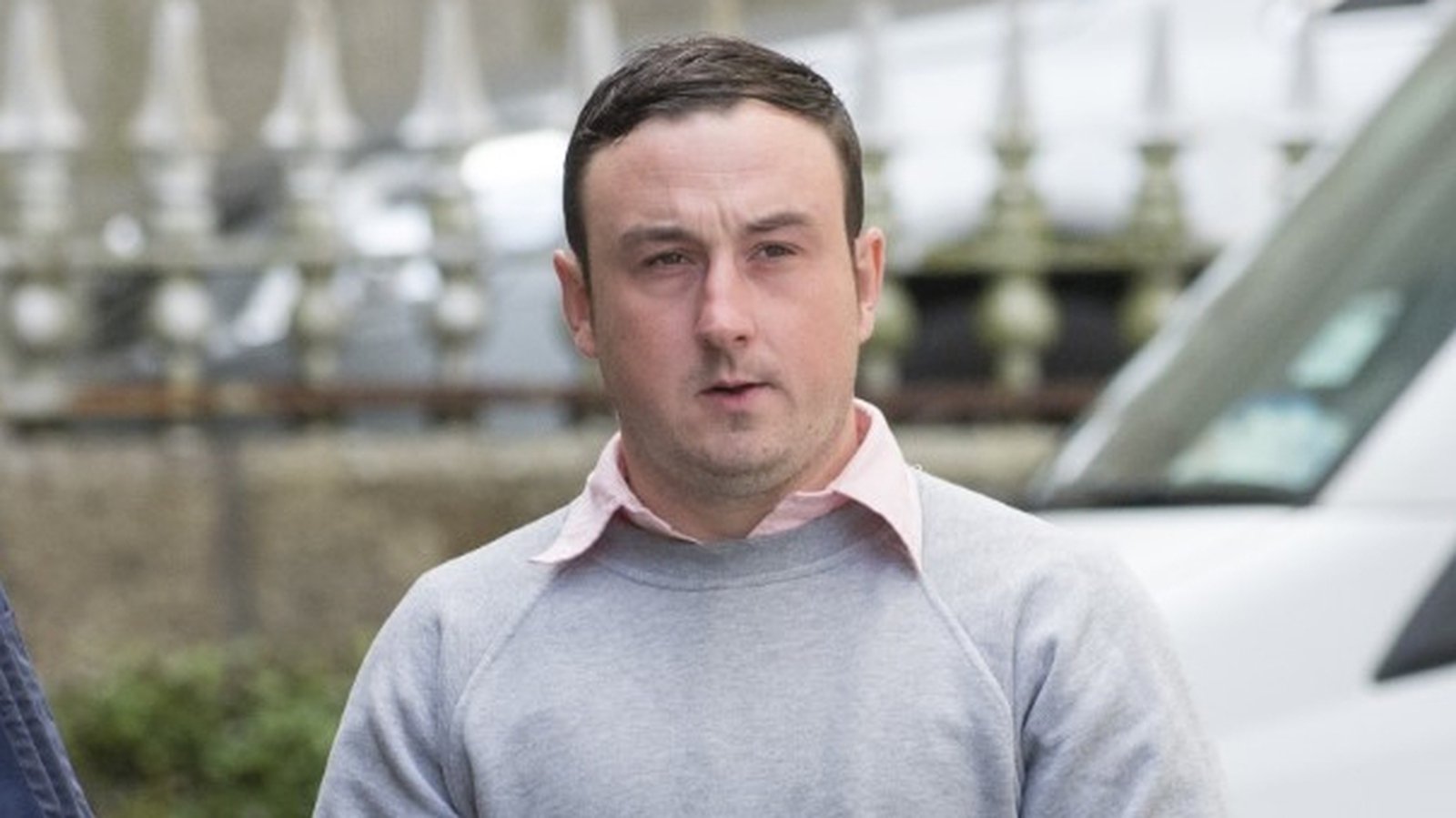World
Brady loses appeal over murder of Garda Adrian Donohoe

Convicted garda killer Aaron Brady has lost his appeal on all grounds against his conviction for the capital murder of a garda.
The 32-year-old of New Road, Crossmaglen, Co Armagh, is serving a life sentence with a 40-year minimum having been found guilty in 2020 of the murder of Detective Garda Adrian Donohoe at the Lordship Credit Union in Bellurgan, Co Louth on 25 January 2013.
Detective Garda Donohoe was on a cash escort when he was ambushed by a five-man gang and shot dead. The gang fled with €7,000 in cash.
Brady claimed that his trial was unfair and his conviction unsafe and lodged 46 grounds of appeal.
These included complaints that the trial proceeded during the Covid-19 pandemic, complaints about the admissibility of mobile phone and CCTV evidence, complaints about the decision to allow US witnesses testify via video link and complaints about that evidence.
Brady left Ireland three months after the murder but was subsequently arrested by Homeland Security Investigations and returned to Ireland on foot of a bench warrant.
He was arrested for the capital murder when he arrived in the country, tried at the Central Criminal Court and convicted by a jury on a majority verdict.
He had been granted free legal aid which covered the costs of his trial and appeal.
The Court of Appeal ruled that the trial judge had not erred in directing the trial to proceed during the Covid pandemic and had been clearly concerned about the “unprecedented public health crisis” and its impact on Brady’s right to a fair trial.
It found Mr Justice Michael White was justified in admitting into evidence a conversation between Brady and his then girlfriend, Jessica King.
Brady told gardaí he was with her from 7.30pm until 3am on the night of the murder and into the following morning and although she originally gave him a false alibi she subsequently changed her statement and told the truth.
She originally lied to the gardaí because she believed Brady was laundering diesel and she also knew that he was under curfew because of a different case and was not supposed to be out.
The Court of Appeal did not find an error in the trial court’s refusal to discharge the jury because of the cross examination of Brady’s former solicitor.
It said the questions posed to him could not be said to be prejudicial and the trial judge’s comments were “careful and measured”.
It found that Mr Justice White decision to admit CCTV footage which Brady claimed was contrary to his right to privacy under the Constitution was correct and that the trial judge had also “correctly determined” the “admissibility” of mobile phones and the data extracted from them.
The thousands of hours of CCTV footage from 380 locations all over Louth and south Armagh linked Brady and his gang to the theft of the car used in the armed robbery at Lordship and the murder of the detective.
CCTV showed that the raiders were dropped off at a laneway behind the credit union about 40 minutes ahead of the raid.
Mobile phone evidence also linked Brady to other gang members.
Two phones belonging to Brady and phones belonging to two other suspects were active until about one hour before the robbery when they went completely silent.
The raiders had used walkie-talkies to avoid being traced by their phones. The three men’s phones remained inactive for about one hour after the robbery.
Brady claimed the Director of Public Prosecutions had entered into an agreement with a witness for a restricted form of testimony but the Court of Appeal found the DPP had not given an guarantee and that neither the defence nor the court were bound by a DPP commitment.
Brady also claimed he was denied certain legal protections because his deportation was a de facto extradition.
The Court of Appeal found this was “entirely without foundation,” “there had been no subterfuge” and the US authorities were “entitled to deport Mr Brady.”
The Court of Appeal also “expressly rejected” Brady’s contention that Mr Justice White had “exceeded his powers” by allowing US witnesses testify by video link.
“This mechanism” it said “was forced upon the prosecution by circumstances beyond their control” – the Covid pandemic.
It accepted that while the circumstances of Daniel Cahill and Molly Staunton’s evidence “may not have been ideal”, most notably the interruptions during Ms Staunton’s evidence by her boyfriend in the apartment, Brady had not demonstrated he was “exposed to a real risk of an unfair trial”.
Presiding judge Mr Justice John Edwards said the three-judge court had dismissed Brady’s appeal against his conviction for the murder of Detective Garda Adrian Donohoe “having rejected all arguments” and “not been disposed to uphold any ground of appeal.”










